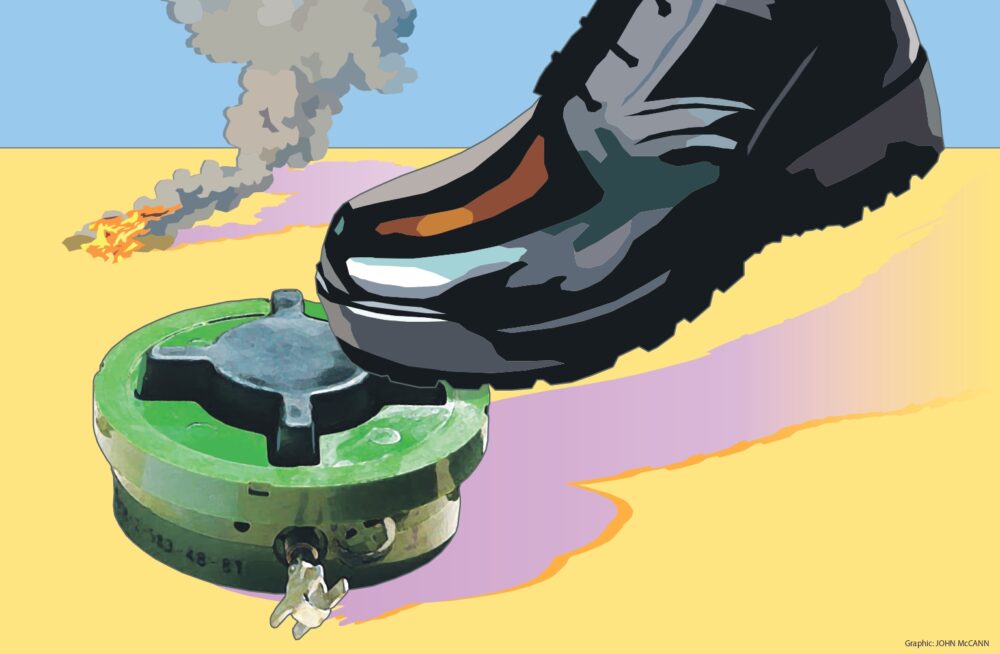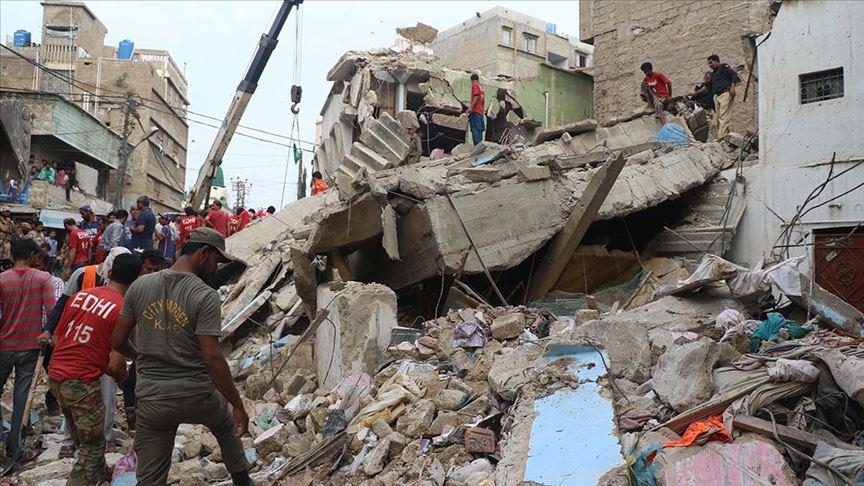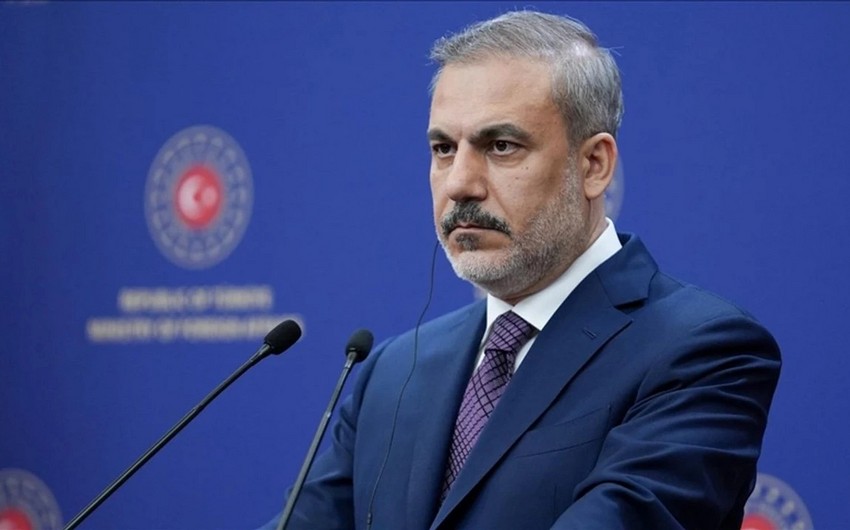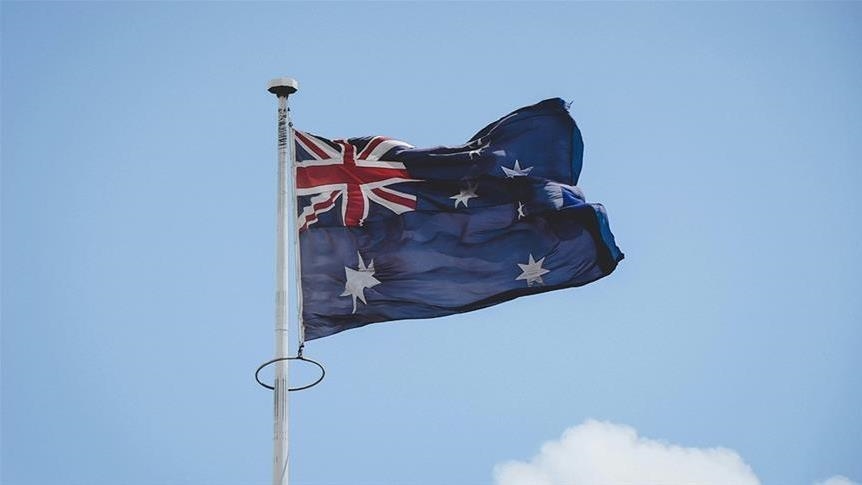Ednews reprints the article "No More War, Can We? A Witness's Plea for a Fragile Future" by Qaiser Nawab, a dynamic Global Climate Youth Leader, played an active role in the proceedings of COP-28 in Dubai as United Nations Delegate Climate Change Conference.
The word "war" isn't a distant concept for me; it's the chilling melody that filled the soundtrack of my childhood in Khyber Pakhtunkhwa, Pakistan. The constant rumble of helicopters, the earth-shattering boom of explosions, the fear etched on people's faces – these are the memories that war has branded into my soul.
Our province, once famed for its emerald valleys bursting with vibrant fruit orchards, became a battleground. The lush forests, once teeming with life – home to playful monkeys swinging through the canopy and birdsong painting the dawn – stood skeletal, their fragrant blossoms replaced by the acrid stench of smoke. The fruits, bursting with juicy sweetness in my childhood memories, now shriveled on barren trees, a cruel reminder of the bounty stolen by conflict.
The human cost of war transcended the physical destruction. Skin diseases, a consequence of polluted water and poor sanitation, became a constant companion. But the most heartbreaking change resided in the eyes of the children. The laughter and carefree spirit that should define their youth were replaced by a haunting wariness. Playgrounds were deserted, replaced by bomb shelters as their only refuge. Traditional games like "gulli danda" (a type of street cricket) and kite flying, once vibrant expressions of childhood, faded away, deemed too risky in a world where the sky could erupt in violence at any moment.
The scars of war extended far beyond the physical destruction. Post-war behavior changes were as stark as the barren landscape. Once close-knit communities became fractured by suspicion. The trust and hospitality that were hallmarks of our Pashtun culture eroded as fear became a constant companion. Conversations became laced with guarded whispers, and neighbors who once freely shared meals became wary strangers.
Traditional celebrations, once vibrant expressions of joy, felt hollow, overshadowed by the grief and uncertainty that lingered in the air. Eid, a joyous occasion marked by colorful clothes, elaborate feasts, and joyous greetings, became a muted affair. The celebratory gunfire that traditionally punctuated the festivities was replaced by a chilling silence, a reminder of the precariousness of life.
The impact of war wasn't limited to immediate destruction. Our rich cultural heritage, a tapestry woven over generations, faced an existential threat. Folk music, a vibrant tapestry of stories woven into melodies played on the haunting strains of the "rubab" (a lute-like instrument), became a fading memory as fear and displacement silenced the musicians. The art of "khushkhail" embroidery, with its intricate geometric patterns and vibrant colors, faced a similar fate. The nimble fingers that once danced across the fabric, creating masterpieces of artistry, were now calloused and worn from years of hardship.
Our storytelling traditions, passed down orally from generation to generation, were also at risk. The elders, repositories of our cultural memory, bore the brunt of the conflict. Many were displaced or lost their lives, leaving a void that threatened to erase centuries of history.
The world may romanticize war in movies and video games, but the reality is far from glorious. It's a brutal thief that steals not just lives, but the very essence of a community.
That's why the question "No More War, Can We?" isn't just a global aspiration; it's a personal plea.
We, the people who have witnessed the devastation firsthand, know that peace isn't just the absence of conflict. It's the flourishing of life – the laughter of children playing in a park rebuilt from the rubble, the sweet scent of ripe fruit filling the air again, and the warmth of community that binds us together.
The road to peace may be long and arduous, but it's a path we must collectively walk.
Here are some ways we can contribute to this collective effort:
• Supporting Grassroots Initiatives: Organizations working on peacebuilding and cultural preservation in war-torn regions urgently need our support. Donating to these causes, volunteering our time and skills, or simply amplifying their voices through social media can make a significant difference.
• Promoting Education and Tolerance: Education is a powerful tool for building understanding and dismantling the narratives that fuel war. We need to advocate for educational systems that promote tolerance, respect for diversity, and critical thinking skills.
• Holding Leaders Accountable: We, the people, can hold our leaders accountable for their actions. We must demand that they prioritize diplomacy and peaceful solutions to conflict.
• Embracing Cultural Exchange: Art, music, and storytelling offer powerful avenues for fostering empathy and understanding across cultures










